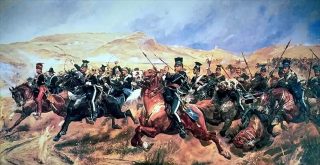Three hundred years ago, it was a well-known and widely held belief (thought to be indisputable truth) that all swans were white. With the discovery of Australia and the subsequent sighting of black swans, a “truth” that was confirmed by millennia of observation by humans was completely invalidated. Interesting trivia, but what does this story have to do with leadership? It turns out, quite a bit.
A Black Swan is a low-probability event that is very difficult, if not impossible to predict in advance, and which has a massive impact. Think of 9/11, the outbreak of World War I, the Great Depression and most recently the world-wide economic crisis.
In his 2007 book, “The Black Swan“, Nassim Nicholas Taleb claims:
Our world is dominated by the extreme, the unknown and the very improbable (improbable according to our current knowledge) – and all the while we spend our time engaged in small talk, focusing on the known and the repeated. This implies the need to use the extreme event as a starting point and not treat it as an exception to be pushed under the rug.
My favorite story from the book is that of the turkey (I guess Taleb likes bird stories). Think of the life of a turkey. For many weeks and months the turkey is fed by the farmer. Each day, the farmer brings the turkey more than enough to eat. In fact, the farmer is so generous with the serving portions that the turkey is getting fat! Each meal delivered by the farmer confirms for the turkey the farmer’s great love and gratitude for the turkey. Until one day, most likely in early November, the farmer arrives not with a meal but a butcher’s knife and…okay, you know how the story ends. Basically, the turkey meets a black swan.
The challenge for leaders is to figure out how not to be the turkey. But how is that possible? Black Swans are impossible to predict, right? Yes, but that doesn’t mean we just pretend they don’t exist at all. Taleb offers some advice:
-
Don’t be fooled by narratives. After reading The Black Swan I realized that I often accept narrative explanations for causation when in truth, I am dealing with a system that is much too complicated to be described by simple models.
-
Remember Extremistan. Figure out what kind of system you’re dealing with. Some systems, Taleb calls them Mediocristan, are not subject to Black Swans, while other systems, called Extremistan are quite vulnerable.
Think of the credit crisis. For many years bankers and economists observed housing prices increasing steadily. After a while, it was widely assumed that prices could only go up. Investments were made, money was lent and mortgage securities were valued all based on this presumably rock-solid assumption. Until one day prices stopped going up. According to Taleb:
Our inability to predict in environments subjected to the Black Swan, coupled with a general lack of awareness of this state of affairs, means that certain professionals, while believing they are experts, are in fact not.
Don’t be a turkey.


